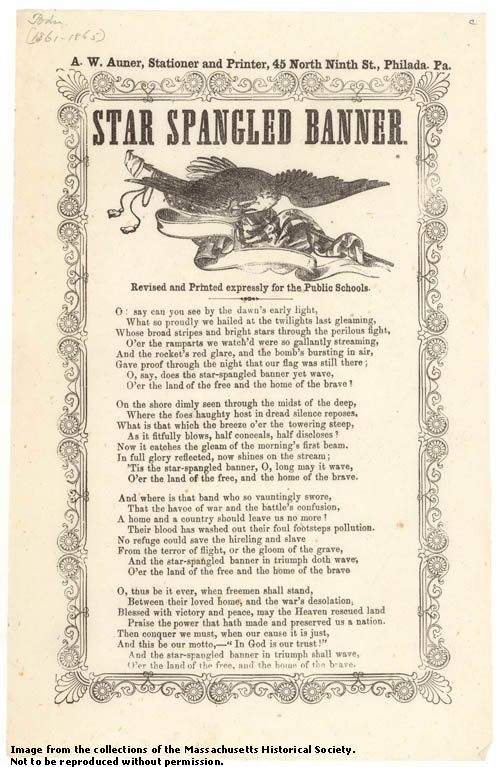By Elaine Grublin
The following excerpt is from the diary of Stephen Greenleaf Bulfinch.
Monday, Aug. 12th, 1861
Among public events, since I last wrote, the battle at Bull’s Run is the most important, – an advantage, though a dear-bought one, to the secessionists. It has led to a change of commander in that section, and to more strictness of discipline and circumspection, while the spirit of the country rises to meet the emergency. There is some misgiving among the more timid, and the importance which the question of emancipation is beginning to assume, may divide our people somewhat. The hope of the secessionists is that England will interfere to break up the blockade which would keep from her the cotton on which she so greatly depends. Congress, after a short and efficient extra session, has adjourned.
My nephew, Charles F. B. has marched for the seat of war, as private in the 13th regiment – M.V.M. He left Monday, July 29th, and is stationed at Sharpsburg, near Harper’s Ferry.
His brother Thomas J. B. is still on board the Narragansett, by last advices at Acapulco, on the Pacific; and has received the approval of his officers, while his letters speak well for his intelligence and character.
Sunday, September 14th 1861
The condition of the country is yet painful; but hope increases, from successes, though not decisive ones in the West, – the capture of the forts at Hatteras Inlet, and the firmness of the government in crushing opposition in Baltimore.
Sunday, Sept 28th
Public affairs still critical. A pretty large force at Lexington in Missouri, of our men, compelled to surrender. Some dissension between the government and Gen. Fremont. But the good sense of the President, I trust under God, will prevent trouble there; an enormous army is said to be concentrated at Washington; Kentucky is decidedly on the Union side; and North Carolina gives favorable indications. The question, What shall be done about the slaves? is pressing itself on public attention, especially from Fremonts’ proclamation of freedom to slaves of secessionists in Missouri, & the president’s qualification of it. For myself, while with reverence I recognize the approaching settlement of the slavery question by Divine Providence, I am very anxious lest any false step should involve us in the guilt of calling the slaves to insurrection, & the horrors that must succeed. I think, the hour may come for declaring freedom to the slaves; but am disposed to fix the time for it at the end of the war, rather than in its course.
Our young connection Edw. Huntington, has entered the regular army. My brother F. continues to receive good accounts from his sons. Two of my young parishioners, W. F. & P. B. have returned from the army, out of health.
Be sure to visit the blog in October to read Bulfinch’s comments on the Battle of Ball’s Bluff.


 On 14 September 1814, Francis Scott Key penned the first lines of the poem that would become the American national anthem. “The Defence of Fort McHenry” was written and popularized in the days immediately following the American’s success in fending off an attack by the British on the city of Baltimore during the War of 1812.
On 14 September 1814, Francis Scott Key penned the first lines of the poem that would become the American national anthem. “The Defence of Fort McHenry” was written and popularized in the days immediately following the American’s success in fending off an attack by the British on the city of Baltimore during the War of 1812.